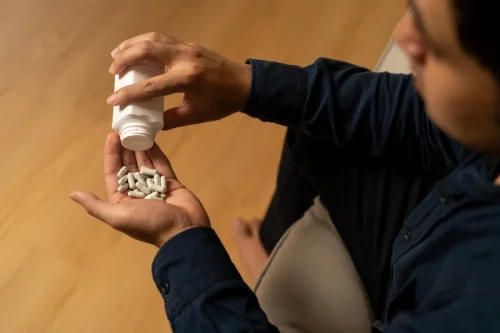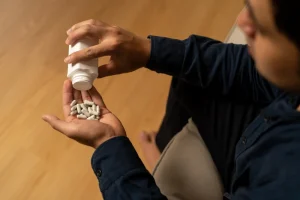Sober Living: What to Expect at a Sober Living Home

Reach out today to learn more about our sober living program and how we can support your journey to lasting sobriety. Some sober living homes offer scholarships or sliding scale fees based on income, making them more affordable for those with limited financial resources. Gender-specific sober living homes are especially popular because they help people avoid the distractions of romantic relationships, which can sometimes take the focus off recovery. Many sober homes encourage therapy, support groups, or 12-step meetings to keep the recovery going strong.
- Checking with the sober living home about available transportation services can help you plan accordingly.
- Some sober living houses may be placed in neighborhoods with high crime rates.
- Anders Hustito said his son gave the impression that the different sober living homes he stayed in were run by the same family, though he did not say who they were.
- She was pleased he seemed happy, though she was surprised the treatment program operators had helped him get an Arizona identification card and sign up for Medicaid in the state.
- He was caught up in a murky network of treatment programs, according to interviews with his family, social media posts, and state and county records.
How to Stop Spending Addiction
Most people stay in sober living for an average of 166 to 254 days, but it’s a matter of personal preference. If you’re hoping for specific programs, amenities, or policies, contact a few providers before committing to a specific sober living facility. Nor have they received an acknowledgment of their loss – not from AHCCCS or the owners of the sober living homes where he stayed.

Our Services
- At a sober living home, you can benefit from a house manager who will oversee operations, and you can count on other residents for help as you move toward independent sober living at home.
- Living among others who share the same goals helps residents feel understood and supported.
- Some sober living houses will allow you to offset the cost of your rent by doing work within the home.
- Meetings were held both in the home and in neighboring organizations in the community.
- Reputable sober living spaces will often have “house rules” that residents are expected to follow.
If you are in treatment, you may work with a social worker or care coordinator who arranges for sober living. However, most sober living houses do not require you to have had any specific type or amount of addiction treatment before entering. Many are available as a resource to anyone who needs help with addiction and is willing to take action toward recovery. Residential or inpatient treatment centers work exclusively with people struggling with severe addictions.

The importance of finding purpose during the recovery journey
10% of US adults struggle with a drug use disorder at some point in their lives, according to… Unravel why addiction leads to poverty and discover resources in Kansas to break the cycle. Discover what happens if someone drinks too much Robitussin, including serious risks and health impacts. Discover what causes addiction, from genetics to environment, and unravel the complex roots of this struggle. Discover the lethal consequences of mixing designer drugs and the hidden risks of synthetic substances. Explore the answer to is addiction a disease and discover the science behind this complex condition.

Inspectors also said the company could not provide proof that its counselors were qualified to work with clients. Meanwhile, word spread on social media that white vans were appearing on reservations and people sober houses massachusetts with addiction were disappearing, said state Sen. Theresa Hatathlie, a Democrat from Coalmine Mesa on the Navajo Nation. Hatathlie said the behavioral health facilities’ tactics of sending vans to tribal communities grew increasingly aggressive as they recruited clients with promises of free food, housing and clothing. Police intervened but didn’t yet fully understand what was happening, the state senator said. Sober living home operators always seemed to be moving him, his father said. She said many people recruited into programs were reported missing and some lost access to treatment or became homeless when the state’s crackdown led to the abrupt closure of facilities that housed people.
- Explore why sometimes you fake it until you make it in recovery and how honesty fuels real growth.
- Residential treatment programs are much more structured and intensive than those in sober living houses.
- A class-action lawsuit filed last month by families who allege the state’s inaction harmed or killed loved ones seeking addiction treatment names three people who died outside of sober living homes or treatment programs.
- Though they might seem similar, there are essential distinctions between the two.
- By Julia Childs Heyl, MSWJulia Childs Heyl, MSW, is a clinical social worker and writer.
Program members typically choose to enroll after completing medical detox. Both https://ecosoberhouse.com/ require residents to live on the premises full-time and work towards a sober lifestyle. Recovery from addiction is a lifelong journey that requires addressing the physical, emotional, and psychological aspects of substance abuse. This process is full of challenges, particularly in its early stages, including intense cravings, withdrawal symptoms, and emotional instability. ” and delve into the benefits it offers, the rules and regulations governing these homes, various types of sober living facilities, guidance on finding one, and insight into the costs involved.

Health Improvement
Prices vary depending on location, living arrangements, and program offerings. Typically, the cost is about the same as living in a modest apartment or home.
While the term sober living is used to define those who are living in a sober house, it does little to elaborate on what happens in a sober living facility. Those Sober living house who decide to live at a sober living facility can expect to be in a house or complex filled with other individuals who are on their last steps of recovery from substance abuse or alcoholism. These facilities do not permit any type of substances on the grounds that could potentially be abused, be it mouthwash with high alcoholic content, after-shave or things like cigarettes.